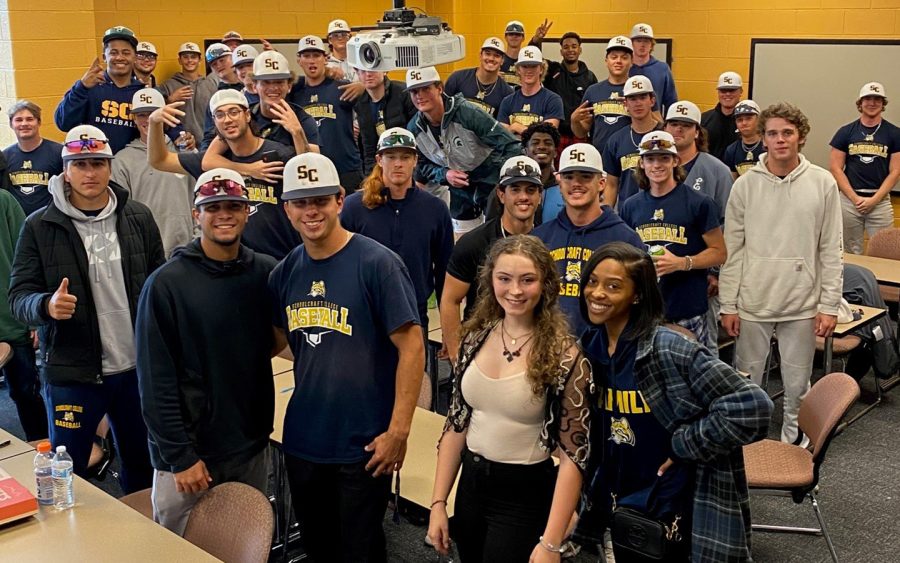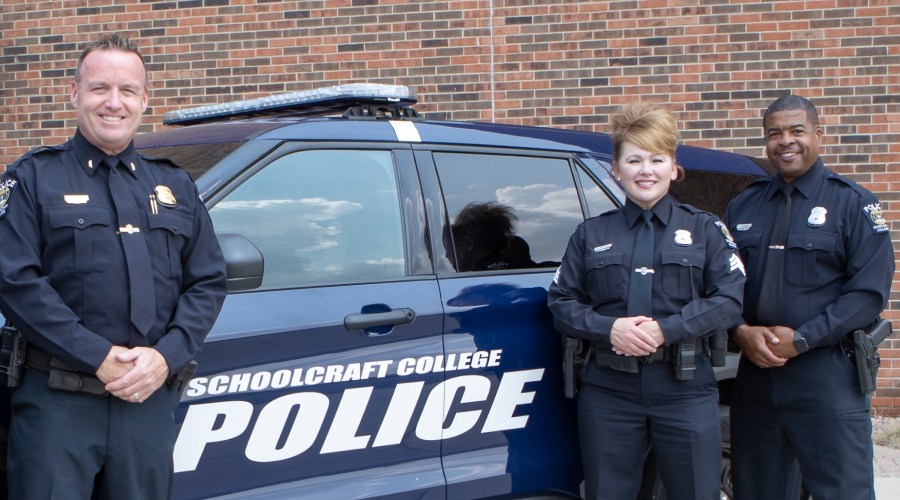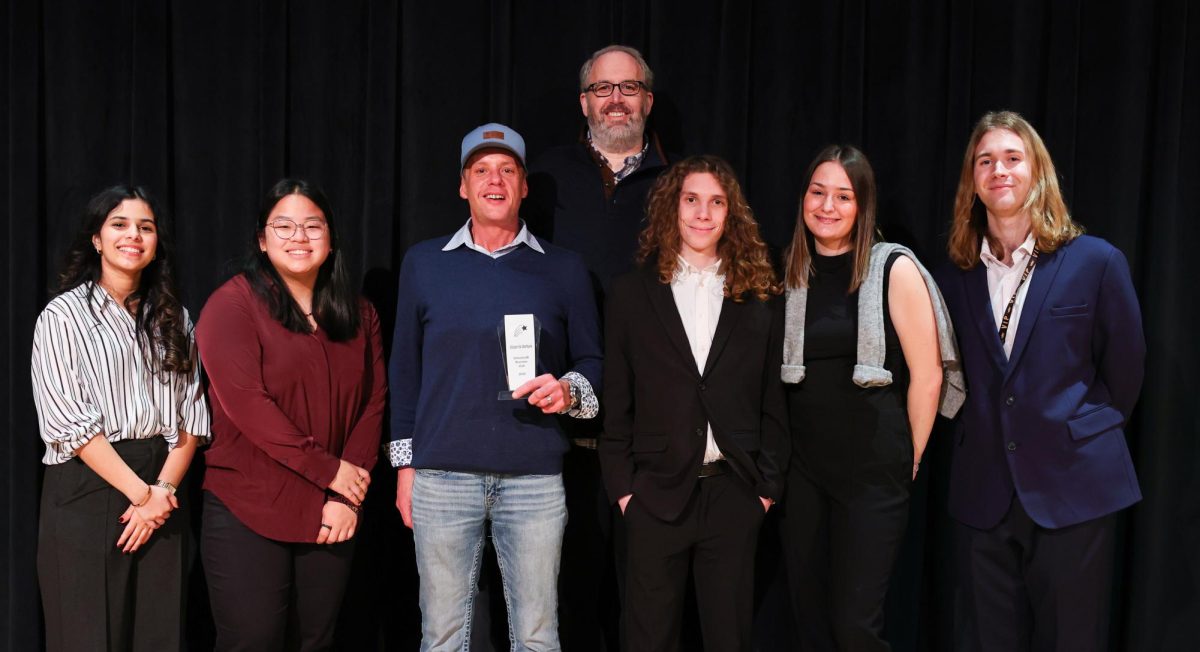Dismantling stigmas
Schoolcraft’s Phi Theta Kappa dedicates their project to the mental health of athletes
Phi Theta Kappa President Madison Loving (front right) and Vice President of Leadership Melia Conners pose for a group photo with the Mens baseball teaam at the conclusion of the “burnout” seminar on Oct. 31, 2022.
February 20, 2023
Improving the awareness and quality of life on campus is the running theme of this year’s project as the Schoolcraft Phi Theta Kappa (PTK) Honor Society Chapter dedicated theirs to diving into the mental health of our athletes. Switching gears from lobbying in Lansing this past semester, PTK collaborated with and conducted a survey on the college’s baseball team to research this often stigmatized topic.
“We all collectively chose this project topic because of recent news circulating throughout the media regarding frequent and heartbreaking suicide occurrences in college athletes, as well as hearing of the pressures and stress these athletes struggled with in silence,” said Vice President of Leadership/PTK Officer Melia Conners.
Having a personal connection to this project, as an athlete herself who experienced the stress that many athletes do, Conners was particularly motivated to address this issue.
“Personally, I was an athlete for many years and struggled immensely with the pressures and stress that came with being an athlete. Therefore, I felt a strong connection to the topic and felt it was best that because we have the opportunity to help our collegiate athletes, [as] we should.”
Prioritizing their project on athletes’ psychological stress, specifically burnout and its underlying causes, they discovered internal factors like perfectionism, compact schedules, high expectations with external factors like physical exhaustion from academic journals and psychologically targeted athletic studies. PTK was then able to confirm that burnout is an active epidemic from the research they uncovered, which resulted in further investigation; leading to a series
of meetings with Schoolcraft faculty and current sports staff, including Instructor and Sports Psychologist Dr. Greg Czar and Athletics Director Patrick Yelsik.
Through PTK’s extensive research, they developed an objective with research-based expectations for the possible results of their anticipated actions; thus removing any uncertainty or variables they could be unaware of. The main goal to be achieved was “helping our college athletes steer clear of the damaging effects of burnout,” according to PTK’s final report, as well as identifying what factors contributed to such burnout.
“Being an athlete, specifically in the collegiate realm presents many facets of responsibilities that are committed to. Between family, academics, athletics and personal duties, an overwhelming emotion of drain can rise; impacting the balance of life,” said President of PTK Madison Loving. “It is important that this topic of mental health is addressed in order for athletes to have an understanding of emotions that are being felt based on circumstances, and the coping mechanisms that can be utilized to assist in eliminating the burnout being felt.”
PTK then administered the “Collegiate Athletic Burnout Survey” and utilized the baseball team; suggested by Yelsik due to the size of the 50+ player roster and its diversity. The players were asked to rate how accurate a phrase was to personal application (ex: I have a difficult time balancing baseball and academics).
“I learned that mental health issues in sports are not [confined to] a small group. [It extends] a lot broader than what people think it is. I feel like there is [a negative stigma to the mental health in athletes] and I think it’s that sports and recruiting is stressful. I feel like I kind of go through it right now,” said left fielder Nate Saavedra.
After reviewing the results of the survey and identifying a consistency of burnout, it catapulted the process of evaluating and finding a solution to this problem.
“We found that about 57.143% (24/42) of our participants experience mental exhaustion due to their class work and 73.810% (31/42) of our participants feel overly tired from their sport participation,” said Vice President of Communications/PTK Officer Daniel Shahollari. PTK then organized a seminar for the baseball team.
Administered by Mental Performance Coach at the Champion Mindset Group Kelsey Gustafson, she discussed interventions to minimize the negative consequences of burnout which in return promotes a healthy and safe return to finding positive fulfillment in sport participation.
Ocelot center fielder Landon Kempainen explained,“It was good to learn about mental health and the barriers that we encounter and how to overcome them. I wouldn’t say most people, but a good amount of people expect us to always be good mentally; that we don’t really face mental health issues as much as everybody else.”
PTK and those involved collectively agreed they were truly fascinated by the overall experience of this project. The countless meetings and devoted engagement from the baseball team also invited PTK to apply what they may have learned into their own lives.
What came of the survey not only brought to light what is often overlooked and uncomfortable for athletes, but also provided said athletes with resources to detect and minimize burnout, intending to improve the Schoolcraft athlete experience.










